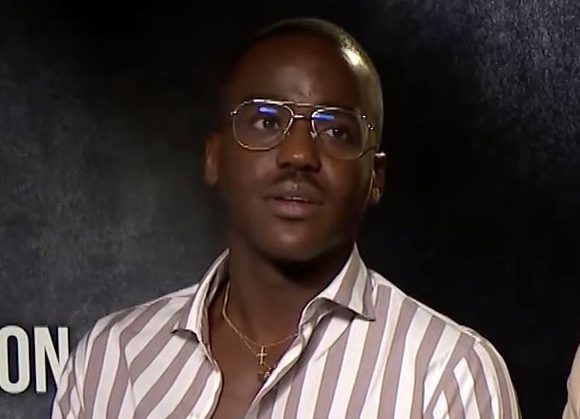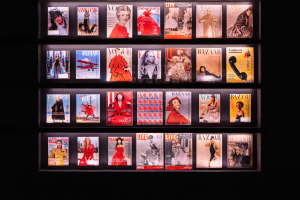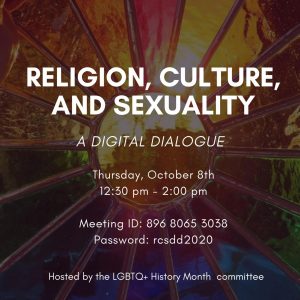What Netflix’s ‘Sex Education’ Tells Us About the Nigerian Queer Community
Eric’s experience in Lagos highlights the contrast between queer visibility in the U.K. and Nigeria

MTV INTERNATIONAL VIA WIKIMEDIA COMMONS
Actor Ncuti Gawa plays the role of Eric Effiong in “Sex Education.” Netflix announced the show is being renewed for a fourth season eight days after the third season premiered.
October 12, 2021
A few months ago, a viral TikTok trend showed multiple American queer creators making videos about what they considered to be their biggest flex — the number of countries they were “illegal” in.
Not only was this privileged “flex” incredibly tone-deaf, but it also lacked nuance, ignoring the communities of LGBTQ+ people who are living and thriving in those parts of the world. These videos reflect a greater trend within Western media of dismissing the experiences of people in other countries and viewing them as a monolith.
This is why the sixth episode of Netflix’s new season of “Sex Education” — which shows a glimpse of the queer community in Lagos, Nigeria — is a breath of fresh air.
When Eric gets to Nigeria, he continues to hide his truth from his extended family, which clearly makes him uncomfortable.
“Sex Education” follows a group of high school students in the U.K. dealing with romantic, platonic and sexual relationships while also navigating complex family dynamics. One of the show’s main characters, Eric, is a British Nigerian gay teen whose immediate family loves and accepts him. But in the sixth episode of season three, when Eric goes to Nigeria to attend a wedding, he comes to a new understanding of his multifaceted identity.
In the previous episode, Eric’s mother, despite being accepting of her son, makes it clear that she expects him to dress differently when they travel to Nigeria. She even demands that he change out of his colorful outfit into one with dimmer colors in order for him to fit in. Eric is reluctant to do this, especially as someone who is confident and proud of who he is, but he complies.
When Eric gets to Nigeria, he continues to hide his truth from his extended family, which clearly makes him uncomfortable. Watching his grandma make comments about him getting a girlfriend, Eric finds himself in a position where he is forced to smile and nod, not getting to say how he really feels or talk about his true experiences.
This is one of the only times that we see Eric suppress himself like this. This change in character emphasizes the power of stigma, even just concerning conversations surrounding the LGBTQ+ community in Nigeria. Beyond the legal aspect, it can be difficult to have honest conversations within families about these topics, and the show highlights how difficult these kinds of conversations can be for young queer Nigerians. This is partly due to expectations derived from strict religious beliefs, and the idea that being gay is an inherently Western concept and is therefore “un-African.” Attempting to push back against this stigma can often lead to isolation from family members.
At the wedding, Eric starts talking to the photographer, Oba, a young gay man, who invites him to a gay club in Lagos. When Eric leaves with Oba in a taxi, he starts to talk about how excited he is to be out with him. However, we quickly notice that Oba remains quiet and looks uncomfortable, while the taxi driver maintains a stern and suspicious look on his face.
At this point, I was worried that Oba might be a “kito.” This slang, common in Nigerian queer communities, refers to people who pretend to be queer in a ruse to meet up with actual queer people and blackmail, abuse or harm them. Thankfully, Oba is who he says he is. But even though Eric is safe in this situation, Oba goes to check for potential escape routes when they arrive at the club, showing the constant fear of harm many queer Nigerians unfortunately experience.
Still, this episode only tells one story about queer people in Nigeria, and one that is very limited in perspective.
The most significant takeaway from this, I hope, for people who may have misconceptions about being queer in Nigeria is that queer people exist in the country despite their existence being criminalized. They are not punchlines for TikTok jokes or witty comments. They are real human beings, many of whom are fighting against oppression on a daily basis, despite the obstacles around them.
“Sex Education” juxtaposes Eric’s comfort and freedom in a queer club in Nigeria with his discomfort within his own relationship back in the U.K., which reflects the complexity and nuance of people’s experiences with queerness. The episode also shows how a person’s comfort within their own identity may affect their experiences, no matter where they are in the world.
Still, this episode only tells one story about queer people in Nigeria, and one that is very limited in perspective — it is focused only on Lagos, and, more specifically, a seemingly affluent area of Lagos. The kinds of freedoms that people have access to vary greatly depending on what part of the country they live in, their ability to access social media and other people like them, and even how wealthy they are. Eric has a significant level of privilege because he can leave the country and go back to the U.K. whenever he wants, while the average queer Nigerian does not have that luxury.
Overall, the show has been respectful and fairly effective at representing Eric’s connection to his culture. The producers have also done a good job of exploring his queerness and relationships, and combining those two aspects of his identity made for an interesting and enlightening episode.













